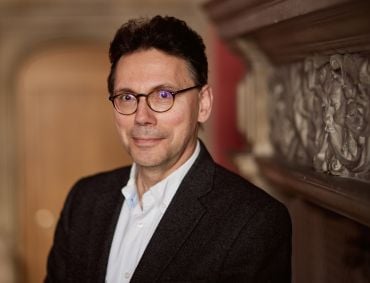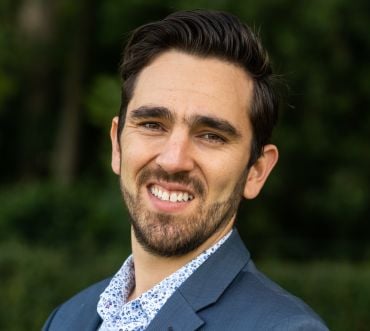
Oxford University academics call for ambitious actions at UN Climate Change Conference COP29
Launching today, the UN Climate Change Conference for 2024 (COP29) in Baku, Azerbaijan, will bring together around 200 countries to develop renewed plans for addressing climate change. With global progress currently ‘falling miles short’ of that needed to avoid catastrophic climate change, there is urgent pressure for these negotiations to result in more ambitious actions. A delegation of University of Oxford researchers will be attending the conference in person, with many more following the proceedings virtually. Throughout the summit (11-22 November), they will be contributing their expertise and presenting new research findings to inform the discussions.
The Oxford delegation includes representatives from the Department of Biology, School of Geography and the Environment, Blavatnik School of Government, Smith School of Enterprise and the Environment, Faculty of Law, and Saïd Business School. Their expertise covers a broad range of critical areas including climate finance, carbon trading, climate justice, and environmental law.
 Professor Thomas Hale. Credit: John Cairns
Professor Thomas Hale. Credit: John CairnsHe said: ‘I hope COP29 will send countries a clear signal that they need to upgrade their pledges under the Paris Agreement, due next year, and match top-level targets with concrete rules and regulations that drive implementation. A trust-building deal on the new finance goal can give countries confidence to reach their maximum ambition.’
 George Carew-Jones
George Carew-Jones
He said: ‘COP29 is a big opportunity to target a couple of barriers which have been holding back the UNFCCC process for a long time: finance and accountability. I’m confident we’ll see clarification on how politically realistic different routes to finance are, but I am not so confident that this will result in the quick mobilisation of bulk financing. Growing accountability will be key to pushing for more finance as we go forward, and I think we’ll see some novel ideas from the most ambitious states (e.g. the small islands groups) on how that should look.’
 Professor Sam Fankhauser
Professor Sam Fankhauser
He said: ‘This is a bridging summit ahead of the much bigger COP30 in Brazil next year. But it is important that we make progress on issues such as a new climate finance goal, the rules on global carbon trading, and the next round of national commitments to keep global warming well below 2°C. I hope our research can give parties the confidence to sign up to meaningful new commitments and maintain the integrity of the Paris process.’
 Kath Ford
Kath Ford
She said: ‘I am delighted to be representing Young Lives at COP29, showcasing our ground-breaking evidence on the life-course and intergenerational impacts of climate change and environmental shocks on children’s nutritional health, physical growth, skills development, and learning. I will be advocating for better social protection for disadvantaged households in disaster-prone regions, particularly for vulnerable girls and women, and reaching out to new partners to support our innovative new Research Hub on Climate Shocks and Environmental Shocks launched last month.’
 Dr Injy Johnstone
Dr Injy Johnstone
She said: ‘My hope at COP29 is that negotiators will see environmental integrity as central to rather than a barrier to Article 6 operationalisation and that, ultimately, it sets a new global baseline from which to go further and faster on climate mitigation.’
 Dr Mary Johnstone-Louis
Dr Mary Johnstone-Louis
She said: ‘In a time of global uncertainty, COP provides an opportunity for companies to clearly articulate what the private sector needs to innovate and scale solutions. In the race to create the industries of the future, those who participate at COP with the intent to lead for change can unlock resources needed for breakthrough technologies, sustainable growth, and market leadership.'
 Dr Ievgeniia Kopytsia
Dr Ievgeniia Kopytsia
She said: ‘I hope to see COP29 establish concrete mechanisms to support climate action in fragile and conflict-affected settings, moving beyond declarations to implementable solutions. With COP29 dedicating 15 November to Climate, Peace, and Security discussions, the conference presents a unique opportunity to ensure that countries like Ukraine—actively pursuing climate goals amid ongoing conflict—receive adequate technical assistance and dedicated financial support. And as we approach the next round of NDCs, it is crucial for countries to integrate security considerations into comprehensive climate action plans, prioritize socially just transition policies, and account for military emissions in their national commitments. In these politically turbulent times, the path forward must be one that unites climate resilience with a commitment to peace and equity.'
 Dr Amani Maalouf
Dr Amani Maalouf
She said: ‘At COP29, I will share insights on the role of effective waste management in reducing greenhouse gas emissions, current limitations in emissions accounting, and opportunities for carbon market mechanisms to drive investment in effective waste management. At COP29, I hope to foster stronger global commitments towards sustainable waste and resource management and facilitate partnerships that advance transparent, accountable frameworks for reporting and emissions reduction.’
 Dr Ana Nacvalovaite
Dr Ana Nacvalovaite
She said: ‘My hopes for COP29 are firmly anchored in a decisive commitment to climate finance and the promotion of peace. It is imperative that world leaders establish an ambitious New Collective Quantified Goal (NCQG) that significantly increases public funding for adaptation, mitigation, and loss and damage, particularly for developing nations. We must also emphasise the critical link between climate action and peace, recognising that environmental degradation can exacerbate conflicts and instability.’
 Dr Brian O'Callaghan
Dr Brian O'Callaghan
He said: ‘I’m advocating for a climate finance solution that makes economic sense—one that accounts for needs as well as technical factors like financial discounting. Developing countries need a fighting chance to tackle climate change alongside development; their success is the world’s success. In most cases, this requires a target well over $1 trillion per year, clawback mechanisms for missed payments, and a public finance backstop on private finance commitments.’
 Dr Thom Wetzer
Dr Thom Wetzer
He said: ‘At COP29, I hope we can continue to turn a groundswell of climate action into ground rules that embed net zero into the global economy. Recent political developments may create headwinds for climate action, but an increasingly global network of climate rules and regulations creates strong incentives for decarbonisation as firms assess global obligations and market trends. This also underpins the mobilisation of climate finance at a speed and scale commensurate with the challenge we now face.’
The delegation also includes:
Professor Juliane Reinecke, Professor of Management Studies, Saïd Business School.
Dr Hassan Aftab Sheikh is a Research Fellow in Nature Finance at the Smith School of Enterprise and the Environment. His research focuses on nature finance and investment, helping financial institutions decarbonise scope three emissions, and focusing on financing nature recovery.
 Oxford researchers urge reforms to improve global wildlife trade regulation as CITES turns 50
Oxford researchers urge reforms to improve global wildlife trade regulation as CITES turns 50
 Expert Comment: How is generative AI transforming the labour market?
Expert Comment: How is generative AI transforming the labour market?
 Professor Sir Nigel Shadbolt appointed to the UK Government’s Council for Science and Technology
Professor Sir Nigel Shadbolt appointed to the UK Government’s Council for Science and Technology
 Early support for children living in marginalised communities can improve developmental outcomes
Early support for children living in marginalised communities can improve developmental outcomes
 Researchers develop new method to identify fake Covid-19 vaccines
Researchers develop new method to identify fake Covid-19 vaccines
 Researchers show accelerating carbon dioxide release from rocks in Arctic Canada with global warming
Researchers show accelerating carbon dioxide release from rocks in Arctic Canada with global warming
 Over 40% of major companies, cities and regions lack emission reduction targets, shows new report
Over 40% of major companies, cities and regions lack emission reduction targets, shows new report
 University of Oxford and United Nations Human Rights to host landmark global climate summit
University of Oxford and United Nations Human Rights to host landmark global climate summit